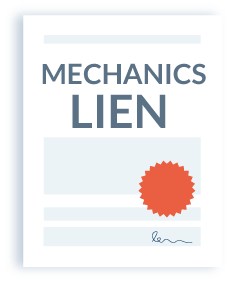
When a mechanics lien (aka construction lien) to secure payment is filed on a project, a “cloud” is put on the property title. When this cloud is present, it becomes nearly impossible for the property owner to sell or take out a loan against that property.
But how long will a mechanics lien affect the property that it’s filed against? As always, the most correct answer is “it varies by state.” But broadly speaking, the real power that a mechanics lien has to affect a property’s title only lasts as long as the lien is valid and enforceable. Once that period of time ends, so too ends the lien’s ability to wreak havoc on the property title.
How a mechanics lien affects the property title

Mechanic’s liens work. The main reason being the effect the legal claim has on the property title itself. A mechanics lien is a legal claim for non-payment on a construction project. These are typically filed in the county recorder’s office or the county clerk of court. Once filed the lien becomes public record. This means that the claim will come up when conducting a title search. When a lien or other type of encumbrance (such as a mortgage) are attached to the real estate, the “cloud” forms over the title. This will make the sale of the property or any attempts to refinance the property incredibly difficult for property owners.
Mechanics lien claims don’t last forever
That’s right, mechanics liens expire.
After a certain date, the lien is no longer enforceable. This means that a lien claimant (the person who filed the mechanics lien) and an owner (the owner of the property that the mechanics lien attaches to) both have a ticking clock. For the lienholder, a foreclosure action must be filed before that clock strikes zero. After that, the lien won’t be able to be foreclosed.
Resolving lien claims before the deadline
For an owner, the closer that deadline gets without resolving the dispute, the more likely that a foreclosure will be filed. Remember- if an owner does nothing after a lien is filed, and the lien foreclosure action is filed, an owner could lose their property.
Nobody likes liens, and in a construction payment utopia, mechanics lien filings would never be necessary. Unfortunately, we’re not there yet. However, the time between a lien filing and a lien foreclosure provides an excellent opportunity for resolving the dispute before anyone has to lawyer-up or lose their property. During this time, the pressure is on both sides to come to the table, and extra steps are still available.
For a claimant, demands for payment can continue, including our favorite – the Notice of Intent to Foreclose. For a property owner, if the lien is bogus, it can be challenged. If the lien has a valid basis, but an owner wants to take their property out of the equation, many states allow for a mechanics lien to be bonded off. When a lien is bonded off, a bond is substituted in place of the lien and the property title is cleared.
A lien may expire, but it might not disappear
As mentioned above, a mechanics lien becomes public record and attaches to the property title. It’s recorded in the real estate records of the county. But what happens after the dispute is settled or after the lien expires? Does it just go away?
“a mechanic’s lien can expire, just like a carton of milk. But just because a mechanics lien expires, that does not mean that it automatically disappears as well. When milk expired in my fridge, it remained there until I finally got around to taking it out. And the same is true for a mechanics lien — in order for it to go away, you have to make it go away…it requires action on your part.”
Bottom line: The mere presence of a lien can still cause issues for an owner – even if it is years beyond its expiration and obviously unenforceable.
Release the lien once you’ve been paid
So, if a lien does expire, or if the dispute has been resolved, a property owner should demand the lienor to remove the now-invalid lien, a process known as a “lien removal,” “lien cancellation,” or “release of lien.” This should be less of an issue when a dispute is resolved prior to a lien foreclosure because an owner will typically (and should always) require a lien release in exchange for final payment made to resolve a lien claim.
If a claimant refuses to remove a lien that is no longer valid, there will typically be some other method for an owner to have the lien removed – though this could take the additional expense and could have an owner feeling like they’re jumping through hoops. Additionally, depending on the mechanics lien laws of your state, a claimant who fails to file a timely release could face some serious financial penalties.
Free Resources from Levelset
The construction industry sure does love its legal forms, and it’s no different when it comes to lien rights and getting paid. From preliminary notices, to lien waivers, to lien releases — if there’s something that you have to do, chances are there’s a form for it!
Fortunately, we have templates available for just about every single form you could possibly need.